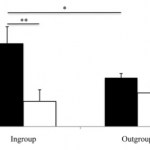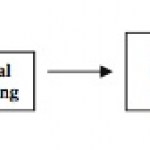SBreaders
You know that old phrase, "monkey see, monkey do"? Well, there might be something to it, except that chimpanzees aren't monkeys. (Sadly, "ape see, ape do" just doesn't have the same ring to it.) A new paper published today in PLoS ONE has found evidence that chimpanzees have contagious yawning - that is, they can "catch" yawns from watching other chimpanzees yawning - but (and here's the interesting part) only when the chimp that they're watching is a friend.
At first, scientists thought that contagious yawning was the result of a releasing mechanism - in other words, seeing someone yawn…
Welcome to Territoriality Week! Every day this week, I'll have a post about some aspect of animal or human territoriality. How do animals mark and control their territories? What determines the size or shape of an animal's territory? What can an animal's territory tell us about neuroanatomy? Today, I begin by asking two questions: first, what is the functional purpose of establishing territories? Second, to what extent can we apply findings from research on animal territorial behavior to understanding human territorial behavior?
It seems that everyone becomes an amateur animal behaviorist…
There is a small bit of land, only about a square kilometer, that has added a new wrinkle to the story of animal domestication. This bit of land located in Northern Jordan, just southeast of the Sea of Galilee near the banks of the Jordan River, is home to an archaeological site known as 'Uyun al-Hammam. One key feature of this site, excavated in 2005, is a burial ground containing the remains of at least eleven humans in eight different gravesites. The early humans were buried here sometime during the pre-Natufian period, or around 16,500 years ago.
Layout of the 'Uyun al-Hammam site, and…
If you're plugged into the science blogtwitosphere, then you surely know that the topic of women science bloggers has been written about extensively. Rather than re-hash what many others have said, I'll direct you to these posts by Kate Clancy and Daniel Lende. Then, late last night, Ed Yong wrote a post highlighting a handful of blogs he reads that happen to be penned (typed?) by science writers who happen to possess two X chromosomes. I also noticed that of all the names and blogs that Ed listed, only one was new to me. Perhaps this is because I'm well-plugged-in to the sciblogtwitosphere,…
Despite the fact that my research lies at the intersection between cognitive, comparative, and developmental psychology, I am also quite interested in the evolution of our understanding of psychopathology. The ultimate goal of the study of psychopathology is to ground such disorders in brain and body. But our understanding of some pathologies are simply not there yet (though some of our therapeutic interventions still prove effective even if we don't quite understand the etiology of a given disease or disorder). The main conflict in the field that characterizes the study of psychopathology is…
In 1975, Edward Tronick and colleagues first presented the "still face experiment" to colleagues at the biennial meeting of the Society for Research in Child Development. He described a phenomenon in which an infant, after three minutes of "interaction" with a non-responsive expressionless mother, "rapidly sobers and grows wary. He makes repeated attempts to get the interaction into its usual reciprocal pattern. When these attempts fail, the infant withdraws [and] orients his face and body away from his mother with a withdrawn, hopeless facial expression." It remains one of the most…
Evolutionary Psychology suffers from a PR problem, which can be mostly blamed on ignorant (even if well-intentioned) members of the population who don't know what they're talking about.
Evolutionary psychology attempts to describe the evolution of the mind and of behavior and, well, everyone has a mind, and everyone can observe behavior. This makes people think that they are experts. Anybody who has ever had a child knows everything there is to know about child development. Anybody who has ever owned a dog becomes an expert on canine behavior. Study after study demonstrates the fact that…
The first iteration of this post engendered quite a bit of discussion. Some of it within the scope of what I initially wrote about; much of it not.
I closed the comments and un-published the post while I considered what to do about it. I've decided to go ahead and re-publish the post, stripped of all editorializing. So what you have now is just description and explanation of the studies.
I had initially written:
Let's make a few things clear: I am not taking sides in the issue of whether or not pornography should be censored or restricted (but most forms of censorship make me very…





